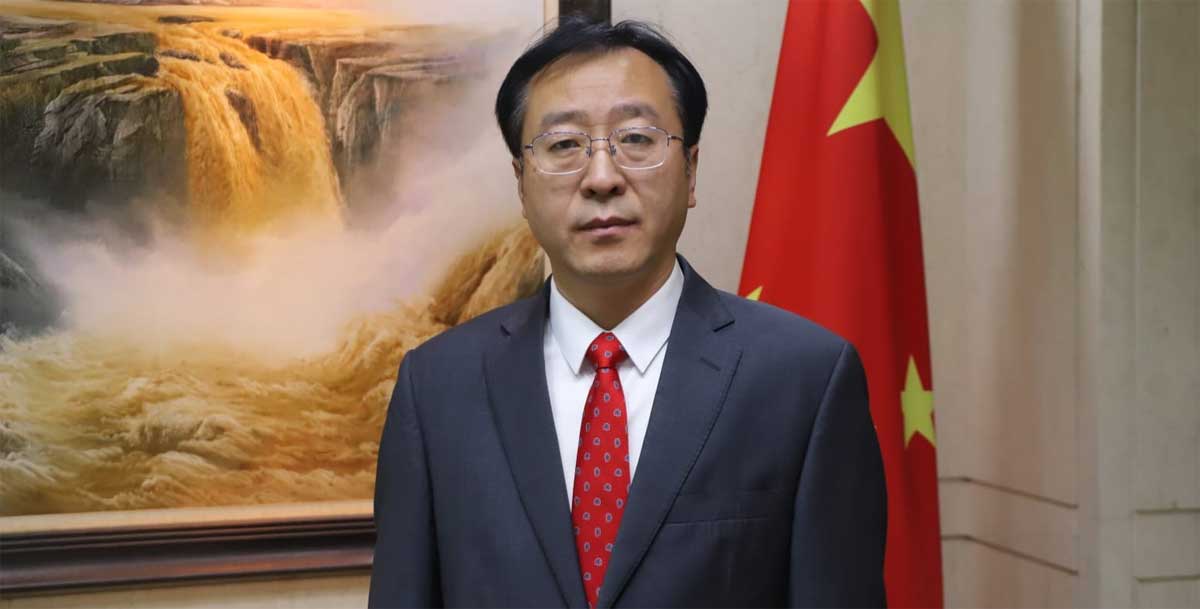Urooj Aijaz & Qaiser Zaman
Iran and Pakistan have been closely linked since the latter became independent in 1947 and their relations have had a distinct characteristic over the past five decades. Islamabad’s clandestine transfer of defense technology and materials to Iran underlines its significance. Political and strategic imperatives have formed the basis of their close relationship despite the divergence of interests and political outlook on regional and global issues. Both countries have tried to reconcile differences and consolidate their ties. Pakistan gained political and strategic importance for Iran after it became an independent state after India was divided into two halves in 1947. The first country to recognize the new State was Iran. In May 1948, it established diplomatic ties with Pakistan, and in May 1949, Prime Minister Liaqat Ali Khan of Pakistan paid a visit to Iran. In March 1950, the Treaty of Friendship was signed and the Shah of Iran became the first head of state to visit Pakistan. India lost the territory it had shared with Iran for generations when Pakistan became an independent state in 1947. Pakistan emerged as a key determinant of the ties between Iran and India where Islamic identity became an important factor in shaping their relationship but their relations are always under stress due to cross-border activities as both nations allegate to hide anti-nationalist forces across the borders.
But the relationship between Pakistan and Iran stands at a very delicate juncture after the latter struck targets inside Pakistani territory on Tuesday (17-1-24) at Panjgur. Pakistan claims that two children died in the Panjgur incident, despite Tehran’s assertion that it struck “strongholds” of the terrorist organization Jaish al-Adl. Similar attacks were carried out by Iran on Monday inside Syria and Iraq, targeting what it claimed to be terrorist facilitators and spy headquarters. In response, the Foreign Office of Pakistan issued a strong statement denouncing this unacceptable infringement of Pakistani sovereignty threatening serious consequences and claiming the attack to be unacceptable, demanding to condemn the act followed by apologies. The quickly worsening situation was highlighted by Pakistan’s decision to stop all high-level bilateral visits and withdraw its ambassador from Tehran on Wednesday. It will also be forbidden for the Iranian envoy to Pakistan, who is presently in his native country, to return to Islamabad.
One of the main points of contention in the bilateral relationship is the actions of militant organizations on both sides of the border. There were several terrorist incidents in the previous year; especially in December 2023 which resulted in the deaths of eleven Iranian law enforcement officers where Iranian officials claimed that the attackers came from Pakistan. Meanwhile, there were two incidents last year that appeared to be from Iran and claimed the lives of numerous Pakistani soldiers. In addition arrest of Gulboshan Yadav from Iranian border is also the point of conflict between the nations but the recent conflict has many dimensions as both countries need to realize the fact that, several external players including India would prefer and love to see a permanent split in relations between Iran and Pakistan to enjoy the un-peaceful conditions in both nations as it is always reflected in the growth and economic prosperity of Pakistan. Most of Pakistan’s oil supply is facilitated through the route of Iran and any further tension will reflected in the disruption of the supply lines causing a shortage of fuel in Pakistan leading to not only a rise in fuel prices but also damaging the industrial production, exports, forex reserves, decline in value of currency and high inflation which further worsen the economic crisis already confronted by Pakistan.
But in contrast, Pakistan has the right to retaliate to secure the sovereignty of the state, and is somewhat necessary to intimate the cross-border enemy nations that Pakistan never accepts any violation of its borders and is empowered to crush such attempts with power which was witnessed few years back when India violate Pakistani territory. This act is also a signal of warning to those who want to mess with Pakistan: one of the nuclear powers of the world but this is also a reality that, wars are never the solution to any problem so rather than taking unilateral action, both governments should collaborate on border security, especially about creating no-holds-barred for terrorist organizations. Preventing a break in ties is an urgent requirement. China may be able to utilize its good offices to assist in resolving this delicate issue as it has friendly connections with both governments and has advised both sides to exercise restraint. The border security management mechanism should be aggressively employed to target extremists posing a danger to the security of any state through cooperative operations after the situation has calmed down. One state’s sovereignty should never be infringed upon by another by force. To ensure that such acts don’t happen again, the Iranian authorities must take further precautions to avoid any further collision because, at a time when our Palestinian brothers and sisters are looking for support from these two Islamic nations, any conflict between them will result in the loss of voices of both nations in front of the international community for their lives.
Any further collision between the two may also result in the form of a declaration of emergency in Pakistan and the postponement of the forth coming February elections. necessary for the smooth functioning of the economy and state so, both parties must use caution and statesmanship to stop this situation from getting worse at a time when the flames of violence threaten to spread throughout the region as the world cannot afford further wars after the Palestine-Israel and Russia-Ukraine conflicts and to prevent the situation from getting worse, Pakistan and Iran must handle this problem maturely.


